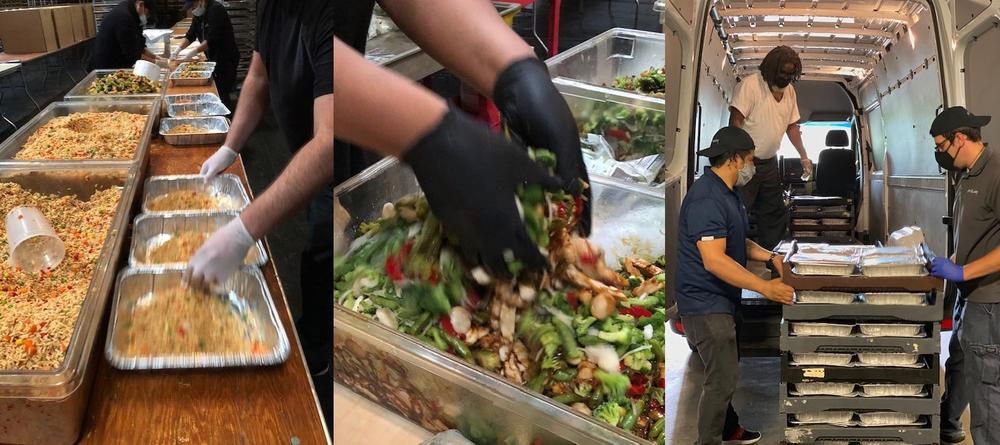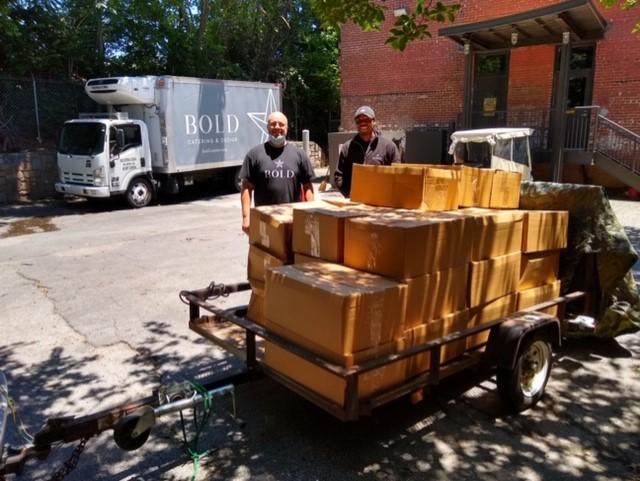
Caption
One of the Atlanta Community Kitchen Project's partners, Bold Catering & Design, as they prepare and package meals to be donated and distributed. These partnerships are firing up underutilized kitchens to help address food insecurity amid the coronavirus pandemic.
Credit: Courtesy of Second Helpings Atlanta



